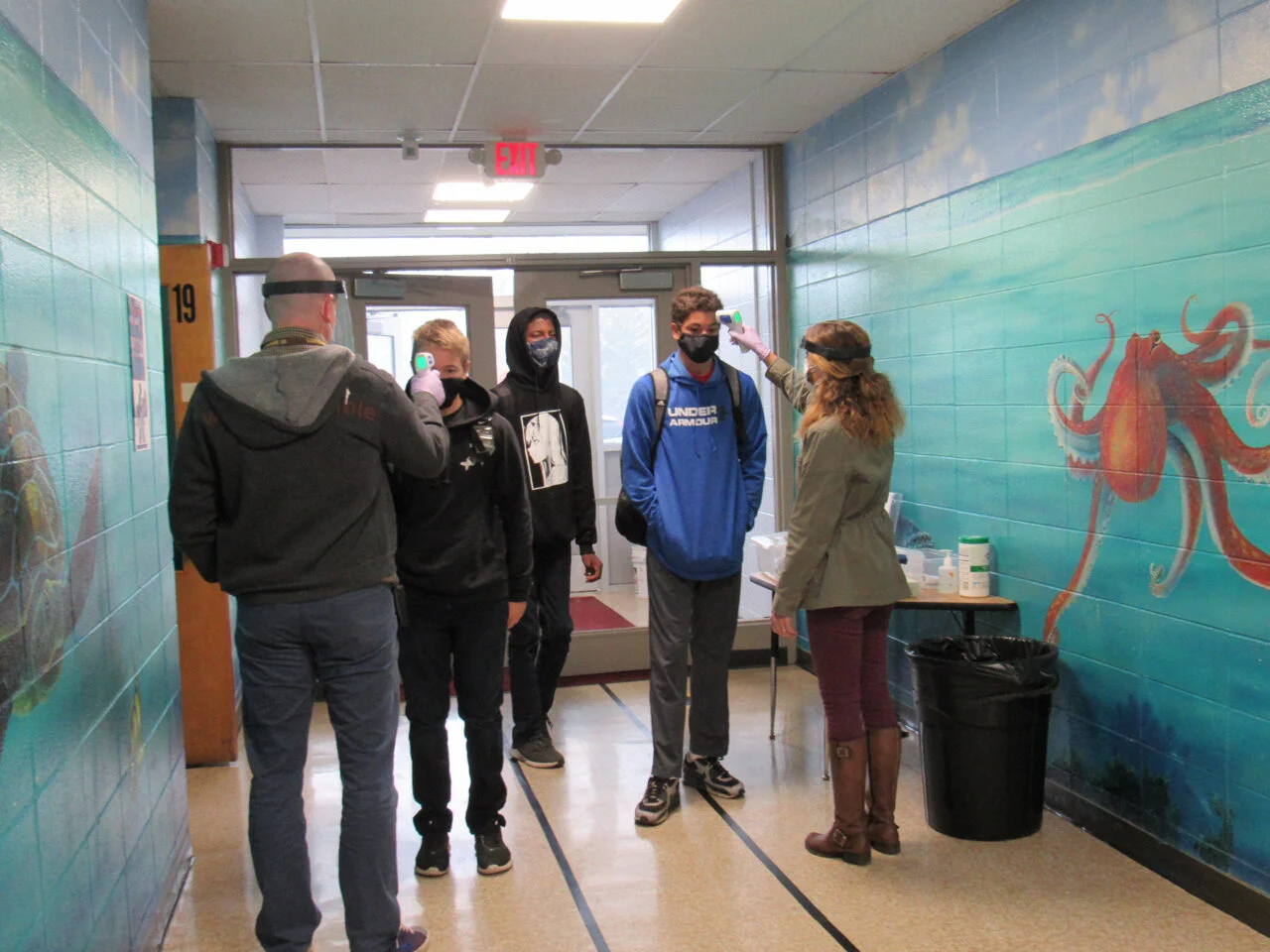Twinfield’s innovative approach to learning during the pandemic
Like most schools during the pandemic, Twinfield Union School has had its share of struggles as they attempt to adapt to a new way of learning. But Twinfield has always operated a little differently, and its flexible teaching model may be the reason they’ve handled the pandemic so well.
Twinfield Union School is a small rural school that serves just over 300 Pre-K through 12th grade students in Marshfield and Plainfield.
Mark Mooney, the principal of Pre-K through 12 for the last 10 years, said that when the school transitioned to online learning last March, “It was kind of like Apollo 13 at first. Here we were trying to recreate how we operate on the fly.”
Returning to school in the fall, however, proved to be much more successful. “When you’re small like us, you learn to be flexible,” he said. “I think that’s one of our strengths.”
Twinfield students have the option to be fully remote this school year. About two-thirds of the students are on campus on any given day, with the school operating on three different schedules. Pre-K through 4th grade have been in person every day, and grades 5 and 6 are now in person as well. Grades 7 and up are learning through a hybrid model, with 7th and 8th graders alternating Wednesdays in person, and high schoolers staying remote those days.
Stephanie Ainslie, the English Language Arts teacher for grades 5 and 6, said how important it was that the school continued to come up with new ideas during the transition.
“I can’t think of any teacher who does the exact same thing every year,” Ainslie said. “That flexibility and creativity is ingrained in everything we do, and we wouldn’t have survived this year without that attitude and approach.”
Using Zoom to meet with parents, for example, proved to be very beneficial, Mooney said, as did doubling the bus runs, which helped lessen bad behavior on the buses and allowed older kids to start the school day later.
Twinfield has also been doing screenings every morning at the door to take kids’ temperatures and make sure no one had COVID symptoms.
“It’s really helped us interact with families at drop-off time,” Mooney said. “We hopefully won’t be taking temperatures in the future, but we do want to continue these morning check-ins to see how families are doing.”
Mooney also said that one of the biggest impacts that came from altering the normal school year was the integration of elective classes into core academic subjects. Ainslie, for example, did some integrated English units with the health teacher.
“We recently did a mental health unit,” she said. “Kids did research, they read books about characters with similar challenges, and then they wrote an advocacy paper. I got to cover the reading and writing skills I needed to, our health teacher got a much higher level of thoughtfulness and careful writing, and the kids got context for the ELA component and purpose behind the health component.”
Similarly, 9th and 10th graders have a course called “Synapse,” in which language arts, science, and social studies are integrated into units and taught in conjunction to one another.
“So one unit might be revolution, for example,” Mooney said. “The kids might read some great literature about revolutions, then learn about the impact of scientific revolutions, then cover some big revolutions in world history. We’d already established this type of collective thinking between the teachers when we went remote, which really helped the transition.”
Twinfield also offers the Renaissance program, a personalized learning program that allows students to design their own class.
Debra Stoleroff, who has worked at Twinfield for over two decades and is director of the Renaissance program, explained that the philosophy behind it is that “school happens anytime, anywhere, and there are multiple pathways to get there.”
Stoleroff said that the pandemic didn’t affect the program very much because she started using Zoom about four years ago to help broaden the program and find mentors without the limit of location.
“There are definitely benefits with virtual learning, and I think that opens doors for the future. Being able to bring people into the classroom, like a guest speaker, can be done so simply now. You could invite someone from Senegal or Thailand. Virtual learning opens the world up a bit more for students,” Stoleroff said.
There are, however, cons that come with online learning, Stoleroff said, particularly with the lack of connections that students are able to build, both with each other and with teachers.
“A lot of what makes small schools so special are the relationships between the students and the teachers. And a lot of that is built by being in person,” Stoleroff said.
Some Twinfield students, though, have found their own benefits to learning online.
“There were certain kids who really flourished with online learning,” Mooney said. “Kids have more time to do school assignments and their house chores.”
“I had a 5th grade parent talking about how online learning really worked for them,” Ainslie added. “They could do the work at their pace and then have the rest of the day to play. I think we’ll have to figure out how to still allow for that kind of self-direction when everyone is back in person.”
Mooney agreed, saying that he wants to find a way for students to have more remote opportunities in the future, maybe giving high schoolers a chance to earn the privilege of working remotely on Wednesdays, which aren’t a typical day of classes at Twinfield.
“School is not the same. I don’t think it’s going to be the same, even when all the kids are back in the building,” Ainslie said.
Mooney said that Twinfield is planning to have everyone back on campus for the coming school year, and the summer program that takes place in July is also planned to be in person.
“We're excited to get kids back on campus, but I think that this last year has made us all stronger,” he said. “It made our school a little bit more connected and I think kids have been really appreciative of how we’ve handled everything.”






